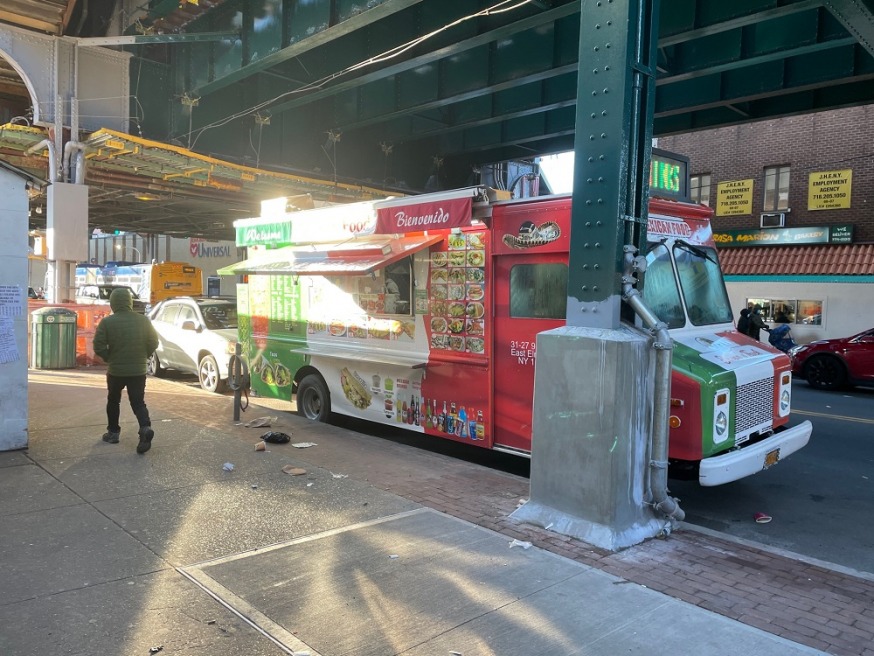
A food truck located on Roosevelt Avenue in Woodside (Photo: Queens Post)
Jan. 29, 2021 By Michael Dorgan
The City Council passed legislation Thursday that will more than double the number of permits for food vendors in the five boroughs.
The bill clears the way for an additional 4,000 street food vending permits to be granted over the next 10 years. The new permits will be on top of the existing cap of 3,000– a number that vendor advocates say is too small and has led to a black market.
The legislation passed by 34-to-13 and now awaits Mayor de Blasio’s signature. The mayor said at a press briefing Monday that he supports the bill.
“This is something I’ve wanted to see for a long time,” de Blasio said. “A balanced plan to support street vendors, but with clear ground rules and strong enforcement.”
The new permits, which will be referred to as supervisory licenses, will be issued in batches of 400 each year – beginning in 2022 through 2032.
The bill calls for the creation of a new vending law enforcement unit that will be tasked with enforcing vending laws and responding to vending complaints and violations.
Furthermore, an advisory board will be set up under the law to assess the effectiveness of the enforcement unit and the roll-out of new permits. It will also make recommendations pertaining to vending laws.
The passage of the legislation has proven to be controversial.
Advocates for brick-and-mortar restaurants argue that street vendors–who don’t have the same overhead costs– take away much-needed customers. They say that the issuance of more permits will make it more challenging for restaurants when many are already on the brink of closure.
More than 150 food merchants and business groups sent a letter to Speaker Corey Johnson earlier this month opposing the bill.
Supporters of the legislation, however, say that it is needed in order for street vendors–many of whom are people of color and immigrants– to make a living.
Many vendors are currently forced to pay excessive amounts to get a permit on the black market or are susceptible to being being slapped with heavy fines.
